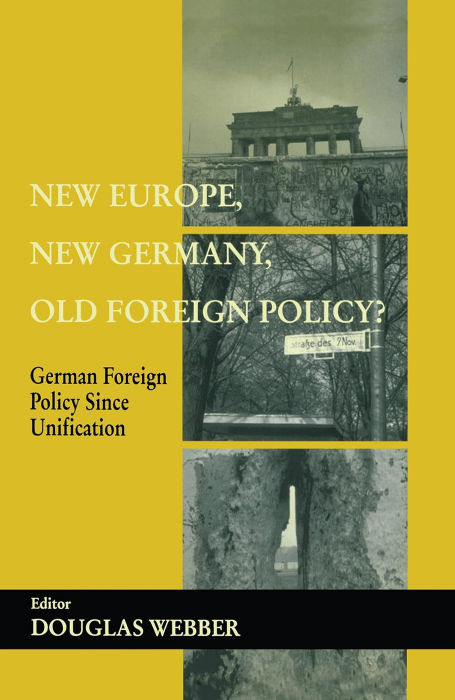Books
Douglas Webber
New Europe, New Germany, Old Foreign Policy?
German Foreign Policy Since Unification (New Europe, New Germany, Old Foreign Policy S)
Did German reunification in 1990 fundamentally transform the country’s foreign policy, or has Germany’s approach remained rooted in its postwar traditions? New Europe, New Germany, Old Foreign Policy? critically examines whether the “new Germany” has adopted a new foreign policy orientation or continued along established lines despite sweeping changes in Europe.
This book explores the evolution of German foreign policy in the wake of reunification, situating it within the broader context of a changing European and global order. Following reunification, Germany regained full sovereignty and emerged as the largest and most populous country in the European Union, raising questions about its future international role and responsibilities. The book investigates whether Germany has shifted toward a more assertive or independent foreign policy, or if it has maintained its commitment to multilateralism, European integration, and alliance politics.
Contributors analyze key areas such as Germany’s relationship with NATO, its leadership within the EU, and its approach to security and military engagement. While Germany’s international influence has grown since 1990, the country has largely emphasized political and economic power over military might, constrained by its historical experiences and its integration in Western institutions.
Notable changes include Germany’s participation in military operations outside the NATO area—an exception to its previous restraint—but these shifts have been gradual and often debated within German society. The book also addresses the impact of the 2+4 Treaty, which restored Germany’s full sovereignty, defined its borders, and set limits on its military activities, reinforcing its commitment to peaceful international engagement.
Overall, the book finds that German foreign policy since unification has been characterized more by continuity than radical change. Strategic adjustments have occurred in response to new challenges, but Germany’s fundamental orientation remains shaped by its history, legal commitments, and the expectations of its allies.
New Europe, New Germany, Old Foreign Policy? stands out for its nuanced analysis of the balance between change and continuity in German foreign policy since reunification. By drawing on historical context, institutional constraints, and contemporary developments, the book provides essential insights into how Germany navigates its expanded role in Europe and the world while remaining anchored in its postwar diplomatic traditions.

